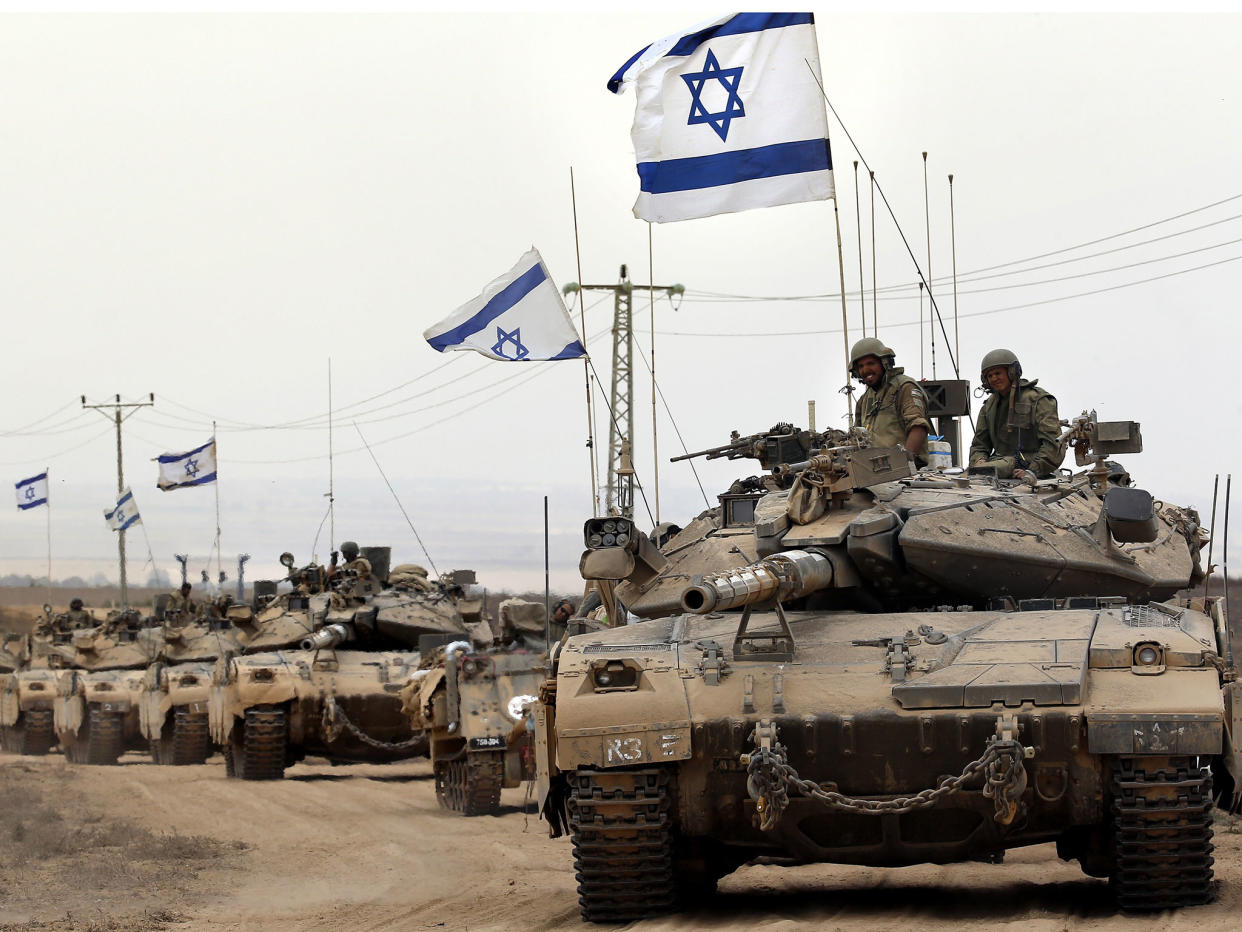My sister has just spent 110 days in Israeli prison for refusing to serve in the IDF – and I'm so proud

On Sunday, my sister Atalya Ben-Abba completed 110 days in military prison for refusing to serve in the IDF. Next week she will meet a military committee that will assess whether she deserves an exemption on grounds of conscientious objection.
Atalya was motivated to refuse mainly because of her exposure to the reality of a regime which deprives millions of Palestinians of their basic rights. But the statement she submitted to the “conscience committee” reveals a deeper and broader analysis of our militaristic society, one that is as relevant in the US as it is here in Israel. So far the media has reported on her criticism of the occupation – that's what most objectors have historically commented on – but Atalya has expanded the arena of critique.
According to Atalya's understanding, violence is a result of the inequality at the foundation of our society. “An egalitarian society or community,” she writes, “would render military and police irrelevant.”
A refusal to enlist in the army is understood by Atalya as one step of “an endless struggle.” The better we deconstruct the sources of oppression in society at large and within our interpersonal relations, the better we would understand them, in an infinite process of analysis and struggle.
“The way and the goal are one,” writes Atalya.
During the bi-weekly prison visits I'm allowed as a family member, I’ve seen Atalya apply this outlook in her everyday life, especially in her conduct with other prisoners.
The other prisoners are not dangerous sociopaths or TV stereotypes. Most of them come from marginalised communities. Most have been convicted of drug use or of defecting in order to provide for their families. As so many of these offences originate in poverty and alienation, they confirm Atalya's claim that “without inequality, there will hardly be any crime.”
When the other prisoners find out that I'm Atalya's brother, they greet me cordially. “You have a wonderful sister – she always supports everyone.”
Bar Or Rahmani from Yavne, who was released after sharing a cell with Atalya and another refusenik, wrote on Facebook: “I'm an extreme rightist,” but that the refuseniks are “the most listening, moral, supportive girls I've ever met.” In a phone conversation she told me that Atalya helped her in moments of crisis, and that although she hasn't completely changed her mind, “she did help me to accept the other.”
Prison Four in Tzrifin is hot and humid these days. The large military base is slowly being moved out of the expanding Tel Aviv metropolitan area. Dust from the construction sites rests on the chimneys of the obsolete British Mandate structures. Atalya spends most of her time working in the sewing workshop or improving her English by reading The Lord of the Rings.
All military prisons are destined to be demolished in 2017, and the prisoners will be moved to a new facility. We will soon find out whether the refuseniks will be forced to continue their legacy in the new prison.
Atalya is committed to the values of peace and equality in an uncompromising and inspiring way. She will continue to stand up for what she believes in, whether it is decided to keep her incarcerated or let her volunteer for civil service of her choice.
In many ways, the military committee that will assess her will actually determine the ethics of our society as a whole. Are we committed to the values of equality and mutual respect, or to unending war? As the Israeli government threatens to drag us into more carnage in Gaza, it is apparent that now more than ever, young people bear the responsibility of walking in Atalya's footsteps, and refusing to take part in the occupation and in its inevitable bloodshed.
Amitai Ben-Abba is an Israeli dissident and writer from Jerusalem

 Yahoo News
Yahoo News 
